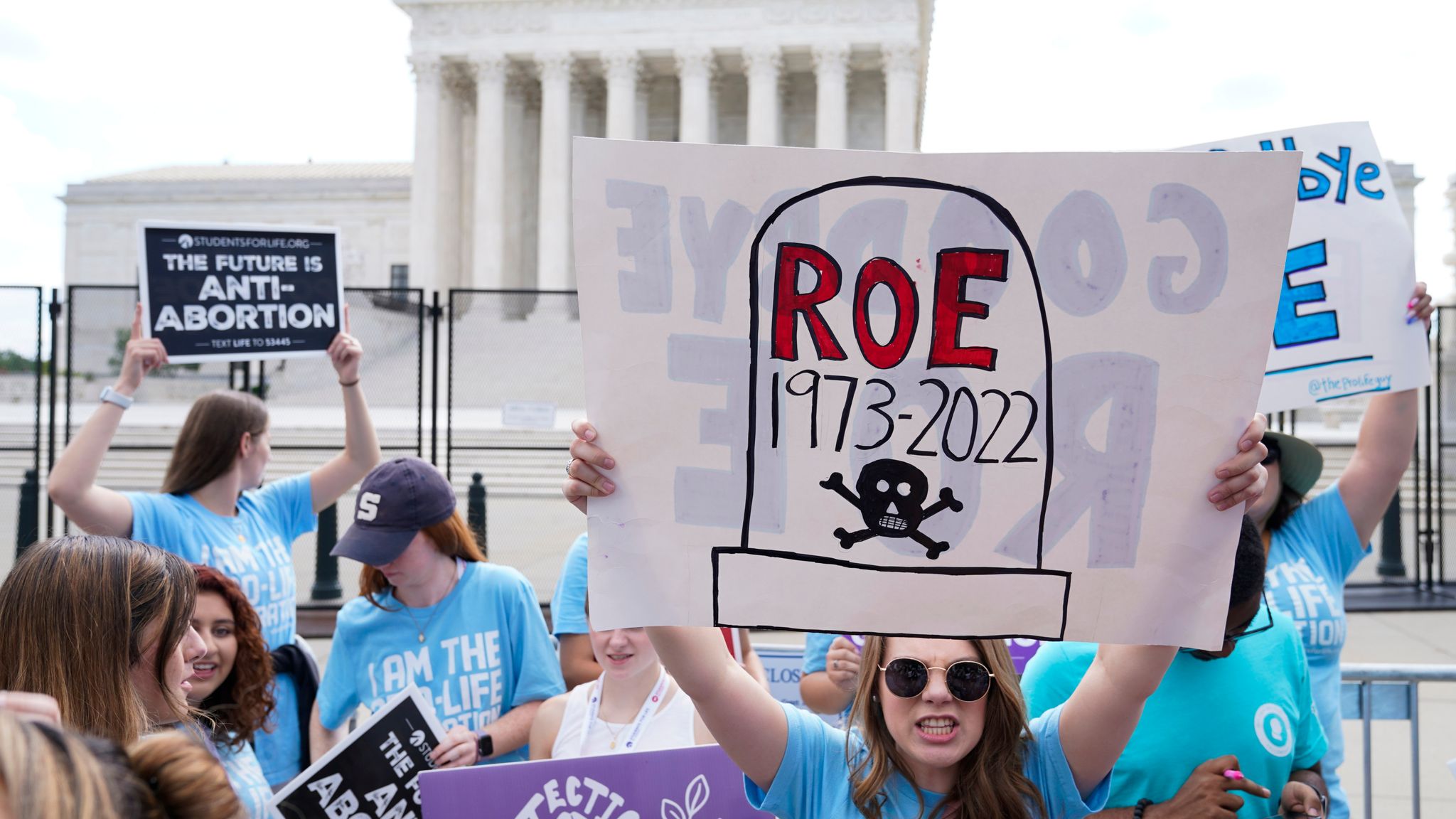Access To Birth Control: The Over-the-Counter Revolution After Roe V. Wade

Table of Contents
The Current Landscape of Birth Control Access
Access to birth control in the US is far from equitable. Many face significant barriers, hindering their ability to plan their families and control their reproductive health. The current system is plagued by high costs, limited geographic availability, and inconsistent insurance coverage.
-
High cost of prescription birth control: The price of prescription birth control pills, patches, rings, and injections can be prohibitive, forcing many to forgo essential preventative care. This disproportionately affects low-income individuals and families.
-
Limited access in rural areas: Individuals living in rural areas often face long distances to healthcare providers, making regular appointments for contraception difficult and expensive. This lack of access contributes to higher rates of unintended pregnancies in these communities.
-
Insurance coverage disparities: Even with insurance, the cost-sharing requirements for contraception can be substantial. Many plans don't fully cover the cost of preferred methods, leaving individuals with significant out-of-pocket expenses. Furthermore, those lacking health insurance are left with limited or no access to affordable contraception.
-
Doctor visit requirements as a barrier: The need for a doctor's visit to obtain a prescription for birth control creates a significant hurdle, particularly for those facing transportation challenges, time constraints, or discomfort discussing intimate health matters.
-
Impact of these barriers on unintended pregnancies: These access barriers directly contribute to higher rates of unintended pregnancies and subsequent abortions. Increased access to affordable and convenient contraception is crucial to reducing these numbers.
The Case for Over-the-Counter Birth Control
The arguments in favor of making birth control available over-the-counter are compelling. OTC birth control promises increased convenience, affordability, and accessibility for all.
-
Increased convenience: Eliminating the need for doctor's appointments simplifies the process of obtaining contraception, making it easier to incorporate into daily life. This convenience can encourage consistent use, increasing the effectiveness of preventing unintended pregnancies.
-
Reduced cost: OTC birth control would likely be significantly cheaper than prescription methods, making it accessible to a broader population. This lower price point could be transformative for low-income individuals and families struggling to afford essential healthcare.
-
Improved accessibility: Wider availability would greatly improve access for marginalized communities, including those in rural areas, those lacking health insurance, and those facing cultural or social barriers to accessing healthcare.
-
Potential to reduce unintended pregnancies and abortions: By making contraception more readily available and affordable, OTC birth control has the potential to significantly reduce the rates of both unintended pregnancies and abortions.
-
Empowerment for women to control their reproductive health: Access to OTC birth control empowers women to take control of their reproductive health, making informed choices about family planning without unnecessary barriers.
-
Potential for increased use of effective birth control methods: Easier access could lead to greater use of highly effective methods, further reducing unintended pregnancies.
Potential Challenges and Concerns Regarding OTC Birth Control
While the benefits are substantial, the transition to OTC birth control presents potential challenges that need careful consideration.
-
Potential for misuse or incorrect use: Without proper guidance, some individuals might misuse or incorrectly use OTC birth control, reducing its effectiveness. Comprehensive education and clear labeling are paramount.
-
Need for comprehensive education and awareness campaigns: Public awareness campaigns are vital to ensure individuals understand how to use OTC birth control correctly and safely, and to address potential side effects.
-
Concerns about potential side effects and how to address them: Open communication about potential side effects is essential, along with resources to help individuals manage them effectively.
-
Ensuring accessibility for all demographics, including those with low health literacy: Efforts must be made to ensure that information is accessible and understandable for all populations, regardless of their literacy levels or language barriers.
-
Addressing potential increase in certain STI’s with easier access: Increased access to birth control may potentially lead to an increase in certain sexually transmitted infections (STIs) if comprehensive sexual health education and access to testing and treatment are not concurrently emphasized.
-
Potential impact on insurance coverage and reimbursement: The shift to OTC birth control could affect insurance coverage models and reimbursement structures, requiring careful planning and potential legislative changes.
The Role of the FDA and Regulatory Bodies
The FDA plays a crucial role in ensuring the safety and efficacy of all medications, including OTC birth control. The regulatory process is rigorous, ensuring that only safe and effective products reach the market.
-
FDA approval process for OTC drugs: The FDA has a multi-step approval process for OTC drugs, requiring extensive testing and review to demonstrate safety and efficacy.
-
Safety and efficacy studies required for OTC birth control: Rigorous clinical trials are needed to demonstrate that OTC birth control is safe and effective for a broad range of individuals.
-
Ensuring accurate labeling and consumer information: Clear and accurate labeling is crucial to ensure consumers can safely and effectively use OTC birth control.
-
Potential impact of political influence on the approval process: It's imperative that the FDA remains independent from political influence to ensure that decisions are solely based on scientific evidence.
-
Public health considerations in decision-making: Public health outcomes must be prioritized in the decision-making process for approving OTC birth control.
Global Perspectives on Over-the-Counter Birth Control
Many countries around the world already have successful OTC birth control programs, providing valuable lessons for the US.
-
Examples of countries with successful OTC birth control programs: Examining the experiences of countries like the UK and Canada, where certain forms of birth control are already available OTC, offers valuable insights.
-
Success metrics and challenges faced in other countries: Analyzing success metrics and challenges faced in other countries can help refine strategies for implementation in the US.
-
Comparative analysis of different regulatory frameworks: A comparative analysis of different regulatory frameworks can inform the development of optimal policies in the US.
-
Lessons learned from international best practices: Learning from international best practices can contribute to a more effective and equitable approach to OTC birth control in the US.
Conclusion
The debate surrounding over-the-counter birth control is crucial for shaping the future of reproductive healthcare. While potential concerns about misuse and the need for education exist, the potential benefits—increased access, reduced unintended pregnancies, and empowered individuals—are substantial. The FDA's role in ensuring safety and efficacy is paramount, and learning from global experiences is vital. The move towards over-the-counter birth control presents a significant opportunity to improve reproductive health outcomes in the US.
Call to Action: The debate surrounding over-the-counter birth control is crucial for shaping the future of reproductive healthcare. Staying informed about the latest developments and advocating for policies that expand access to affordable and convenient birth control options is vital. Let's work together to ensure that everyone has the power to make informed decisions about their reproductive health. Learn more about the ongoing fight for better access to over-the-counter birth control and how you can get involved.

Featured Posts
-
 Will Berkshire Hathaway Sell Apple Stock After Buffetts Departure
May 24, 2025
Will Berkshire Hathaway Sell Apple Stock After Buffetts Departure
May 24, 2025 -
 Tochnye Goroskopy I Predskazaniya Na Nedelyu
May 24, 2025
Tochnye Goroskopy I Predskazaniya Na Nedelyu
May 24, 2025 -
 Veterans Memorial Elementary Welcomes Lego Master Manny Garcia Photos Inside
May 24, 2025
Veterans Memorial Elementary Welcomes Lego Master Manny Garcia Photos Inside
May 24, 2025 -
 Dow Jones Index A Cautious But Steady Rise Following Pmi Results
May 24, 2025
Dow Jones Index A Cautious But Steady Rise Following Pmi Results
May 24, 2025 -
 Investing In The Amundi Dow Jones Industrial Average Ucits Etf Nav Analysis
May 24, 2025
Investing In The Amundi Dow Jones Industrial Average Ucits Etf Nav Analysis
May 24, 2025
Latest Posts
-
 Swiatek And Rybakina Indian Wells 2025 Round Of 16 Showdown
May 24, 2025
Swiatek And Rybakina Indian Wells 2025 Round Of 16 Showdown
May 24, 2025 -
 Programma Podderzhki Eleny Rybakinoy Dlya Yunykh Tennisistok Kazakhstana
May 24, 2025
Programma Podderzhki Eleny Rybakinoy Dlya Yunykh Tennisistok Kazakhstana
May 24, 2025 -
 Rybakina Proshla Vo Vtoroy Krug Turnira Wta 1000 V Rime
May 24, 2025
Rybakina Proshla Vo Vtoroy Krug Turnira Wta 1000 V Rime
May 24, 2025 -
 Rybakina Pomogaet Molodym Tennisistkam Kazakhstana
May 24, 2025
Rybakina Pomogaet Molodym Tennisistkam Kazakhstana
May 24, 2025 -
 Elena Rybakina Prodolzhenie Borby V Rime
May 24, 2025
Elena Rybakina Prodolzhenie Borby V Rime
May 24, 2025
